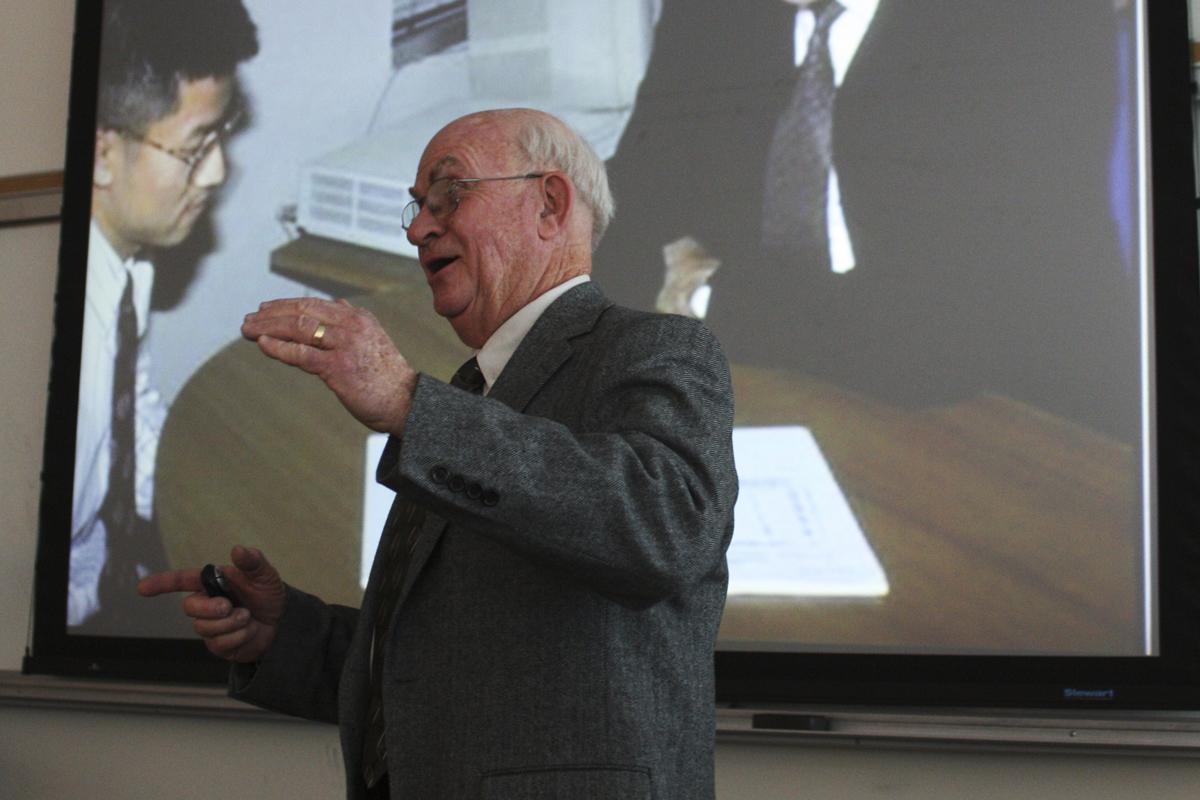Ethical concerns in minds of engineers
Engineers often become so absorbed in the technological side of their work, they forget to consider ethical concerns that may be attached, said Stephanie Whalen, head of a series of events planned by USU’s Institute of Electrical and Electronics Engineering (IEEE).
“The design process for most consumer products is full of ethical issues,” Whalen said. “In making things cheaper, faster and more efficient, there is a very real possibility of people being killed.”
National IEEE speaker Jim Watson was invited to educate budding engineers on the importance of keeping ethics in the forefront of their minds upon brainstorming for new projects. His presentation was titled “Shades of Gray” which alluded to the complexities of dealing with ethical issues that arise in engineering companies’ developing and marketable projects.
“Sometimes these issues are black and white, that’s a no brainer,” Watson said, “but most of the time that’s not the case, it’s trying to decide which (outcome) is the lesser of evils.”
Any unethical behavior comes down to finances or motivation to achieve a high status as an employee, said associate professor of electrical and computer engineering Scott Budge. In the case of the recent nuclear power plant crisis in Japan that left many with radiation poisoning, Budge said this issue was caused by faulty reactors.
“When an engineer chooses to be unethical,” Budge said, “it can result in public safety issues.”
A full room of students were asked to contemplate possible solutions to a circumstance involving the hypothetical contamination of the Ogden River. The toxins of automobile computer circuit boards were accidentally released into the river ultimately tainting farmers’ fertilizer. The students collaborated with others in their group to record a handful of solutions to the issue, and discuss the importance of taking responsibility for the river contamination.
“Engineering is a culture,” Watson said. “It’s really about people.”
Since engineers work for consumers, they have the obligation to instill trust in those consumers with the product they are investing in, Watson said. Therefore, a large portion of an engineer’s job is to remain reliable and honest, which will ultimately lead to success, he said.
When ethical concerns arise, Watson said he highly encourages discussing possible solutions with a trusted supervisor or friend. What is even better is having an entire team of colleagues or co-workers to hash out the best answer to the ethical question.
“You don’t want to come to a conclusion too soon,” Watson said, “if you do you may miss something really important.”
For this reason, Watson gave students ample time to work out the hypothetical engineering ethics cases he presented to them.
“Most items are designed with safety margins,” Whalen said, “but someone must decide the acceptable level of risk. For example, there is a risk of the battery in you laptop computer malfunctioning and catching on fire. Somewhere in the design process, someone must decide what percent chance of failure is acceptable. Lower failure rates mean safer products, but higher costs.”
The best thing engineers can do is be prepared for ethical dilemmas, Watson said, and establish their own ethical standards.
“When (an engineer) is greedy, by not using the rules set up for safety factors it can lead to serious problems,” Budge said, “so it’s crucial for students to learn about this.”
Additional events organized by USU’s IEEE group include Friday’s Tech Talk in Room 201 of the engineering building at 4 p.m., with free food available to those who attend. Also on Friday, there will be a PC gaming tournament in the engineering computer lab, located on the third floor. The tournament will begin at 7 p.m. and students should anticipate paying $5 for food.
– catherine.meidell@aggiemail.usu.edu

